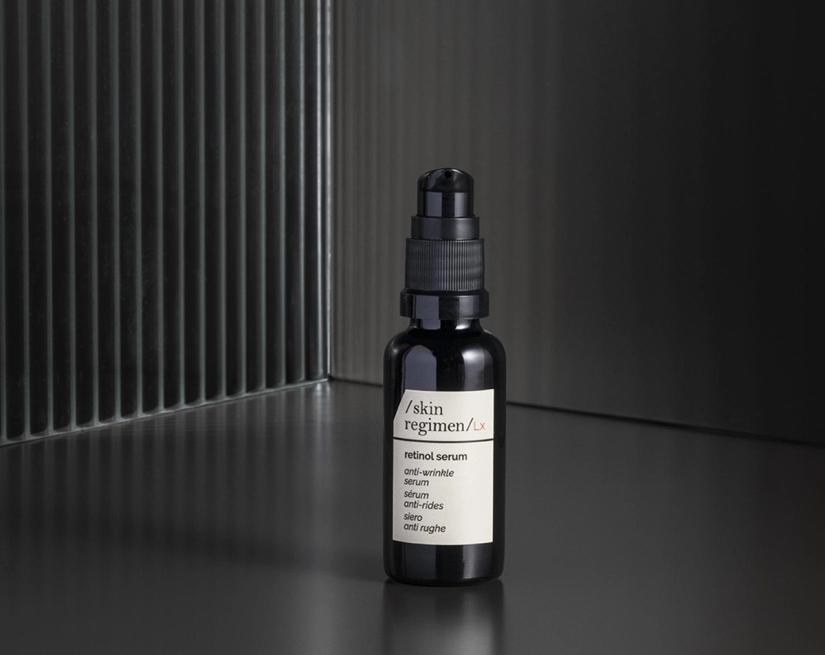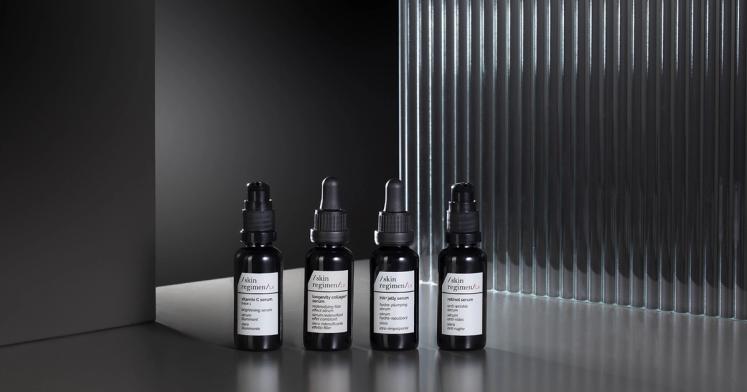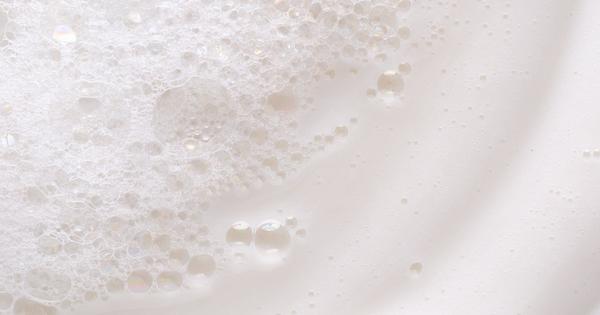Skin Regimen Lx Retinol Serum
Anti-wrinkle serum
skin care
Eve Mérinville | Corporate RD Excellence & SC RD and Innovation Director
8 min read

Proper skin care is essential for maintaining healthy, radiant skin, no matter what your age is. It involves establishing a consistent routine and using the right products that address specific skin concerns.
One such powerful ingredient that has gained significant popularity in recent years is retinol. Derived from vitamin A, retinol is a key component in many skincare products due to its remarkable ability to improve the overall health and appearance of the skin.
When used consistently, retinol can increase skin cell turnover and exfoliate dead skin cells to treat existing signs of aging, such as the appearance of fine lines and wrinkles.
In this blog post, we will explore ways to unlock the full potential of retinol by looking at common skincare products that should and should not be combined with retinol in order to achieve flawless skin.
"Pay attention to the cleansing step while you are using retinol; essence serums or cleaning creams can contain glycolic or salicylic acid that sensitize the skin."
Monica Poli - Skin Tech and Device Product Manager
Understanding retinol is crucial for harnessing its potential benefits and incorporating it effectively into a skincare routine. It is a widely recognized and researched ingredient known to reverse the signs of aging by promoting a smoother, clearer complexion, enhancing skin texture, and brightening the skin.
Because the skin can have adverse effects, it is important to use retinol correctly. Once applied, it begins exfoliating the skin, sloughing off the outer layer of dead skin cells to reveal smoother, healthier skin underneath. Before you purchase just any retinol serum or cream, ensure you understand the different types of retinoids and how they can benefit your specific skin type and goals.
Retinol esters, such as retinyl palmitate, retinyl acetate, and retinyl propionate, are preconverted forms of retinol. They are considered more stable and less irritating than pure retinol, making them suitable for individuals with sensitive skin or those new to retinol.
Retinaldehyde is a slightly more potent form of retinoid that requires fewer conversion steps to become active in the skin. It offers similar benefits to retinol but with potentially less irritation.
Prescription-strength retinoids, such as tretinoin (Retin-A) and adapalene (Differin), are more potent than over-the-counter retinol products. They require a prescription from a dermatologist and are often used to treat severe acne and other skin conditions.

When it comes to achieving flawless skin, retinol has emerged as a game-changer. Renowned for its ability to diminish wrinkles, fade hyperpigmentation, and improve overall skin texture, retinol is a skincare routine staple.
However, using retinol requires careful consideration and adherence to certain guidelines to ensure optimal results and minimize potential side effects.
Patch testing retinol is critical, as this step helps determine if you have any sensitivity or allergies to retinol. To patch test, take a small drop of the serum, place it under the ear, and leave it on for at least five minutes. If there is no reaction after multiple uses for seven days, then you may continue using the product.
When first introducing retinol into your skincare routine, it is recommended to start with a low concentration. This allows your skin to acclimate to the ingredient gradually, reducing the likelihood of irritation.
A little goes a long way with retinol. Begin with a pea-sized amount every other day to minimize the potential side effects. Using too much too fast can cause initial skin sensitivity, redness, or dryness.
Retinol is best used at night as it can make the skin more sensitive to sunlight. Applying retinol before bedtime allows it to work effectively while minimizing the risk of sunburn or sensitivity.
Retinol can sometimes cause dryness, irritation, or increased sensitivity—especially during the initial stages of usage. Incorporating a moisturizer into your retinol skincare routine can help maintain skin hydration, support the skin's barrier function, and enhance tolerance.
Achieving optimal results with retinol requires patience and consistency. While the active ingredients in retinol begin working in your cells right away, it can take several weeks or even months to see noticeable improvements in your skin.

Although potent, retinol is a valuable addition to any skincare routine. However, it's important to exercise caution and be mindful of what other products you use in conjunction with retinol. Some ingredients can interact negatively with retinol, potentially causing irritation, sensitivity, or diminishing its effectiveness.
Retinol itself acts as an exfoliant by promoting cellular turnover and shedding dead skin cells. Therefore, it's best to avoid using harsh physical exfoliants or scrubs in combination with retinol. Over-exfoliation can strip away the skin's protective barrier and lead to irritation.
Not all ingredients are designed to be applied together. In some cases, mixed ingredients can lead to irritation, redness, or the reduced effectiveness of an ingredient.
While both retinol and vitamin C offer significant benefits for the skin, they can be too potent when used together. Layering the two ingredients may cause irritation. You can avoid this by carefully spacing out the application of each product—use vitamin C in the morning and retinol at night.
Benzoyl peroxide is commonly used to treat acne, but it can be harsh on the skin and may cause excessive dryness and redness when used with retinol. Both of these ingredients are beneficial to acne-prone skin, however, if you use them together, there’s a chance they’ll cancel each other out.
AHAs and BHAs, such as glycolic acid and salicylic acid, are exfoliating ingredients that can potentially increase skin sensitivity when combined with retinol. For those wanting to use all three ingredients in their skincare routine, it is best to use them at night, on different days, and at different times.
Both salicylic acid and retinol are potent ingredients that have exfoliating effects on the skin. Salicylic acid is a common ingredient in acne treatments, but it can overload the skin when combined with retinol.
When combining retinol with incompatible ingredients, you risk experiencing heightened skin sensitivity, dryness, redness, or even adverse reactions. It's important to note that individual reactions may vary, and it's always wise to perform patch tests and consult with a skincare professional or dermatologist before introducing new products or combinations into your routine.
Those with highly sensitive skin or who are pregnant may opt for a retinol alternative. The following retinol alternatives are gentle, yet they still yield similar positive effects:
Bakuchiol
Bakuchiol is a plant-derived ingredient that has gained popularity as a natural alternative to retinol. It offers similar anti-aging benefits, such as reducing fine lines and wrinkles, improving skin texture, and promoting collagen production, without the potential side effects associated with retinol.
Peptides
Peptides are amino acid chains that help stimulate collagen synthesis and improve skin elasticity. They can be an effective alternative to retinol, particularly for individuals with sensitive skin or those seeking milder anti-aging solutions.
Niacinamide
Niacinamide, also known as vitamin B3, offers multiple skincare benefits, including reduced inflammation, improved skin barrier function, and regulated sebum production. The Comfort Zone Essential Toner uses niacinamide to immediately restore the skin's radiance.
Retinol is a powerful active ingredient, but this doesn’t mean it has to be used exclusively. In fact, there are complementary products that can be combined with retinol that optimize its benefits and reduce potential negative effects.
Hyaluronic Acid
Hyaluronic acid is a humectant that attracts and retains moisture in the skin, resulting in enhanced hydration and plumpness. It can work synergistically with retinol by counteracting any potential dryness or irritation. The new Hydramemory collection by Comfort Zone is formulated with hyaluronic acid and Prickly Pear Extract to boost the skin’s hydration.
Anitoxidant-Rich Products
Antioxidants, such as vitamin C, green tea extract, and resveratrol, help protect the skin from free radical damage caused by environmental stressors. The Comfort Zone Renight collection supports natural night repair through antioxidant-rich, nourishing formulas.
Sunscreen
Sunscreen is an essential component of any skincare routine, especially when using retinol. Retinol can make the skin more sensitive to sunlight, so it's crucial to protect your skin from harmful UV rays.

Retinol is known for its powerful benefits in promoting skin health and addressing various skin concerns. When applied, retinol works to improve the appearance of fine lines, wrinkles, uneven skin tone, and texture. Overall, using retinol on a consistent basis can lead to smoother, younger-looking skin.
Remember to start with a low concentration, every other day, only using it at night. And because retinol is so potent, avoid layering it with other potent ingredients like vitamin C or salicylic acid. To further explore how you can build your skincare routine to best align with your skin type and concerns, check out Comfort Zone’s products.
Anti-wrinkle serum
Brightening serum
Hydrating glow cream
Nourishing vitamin cream
Exfoliating foaming powder